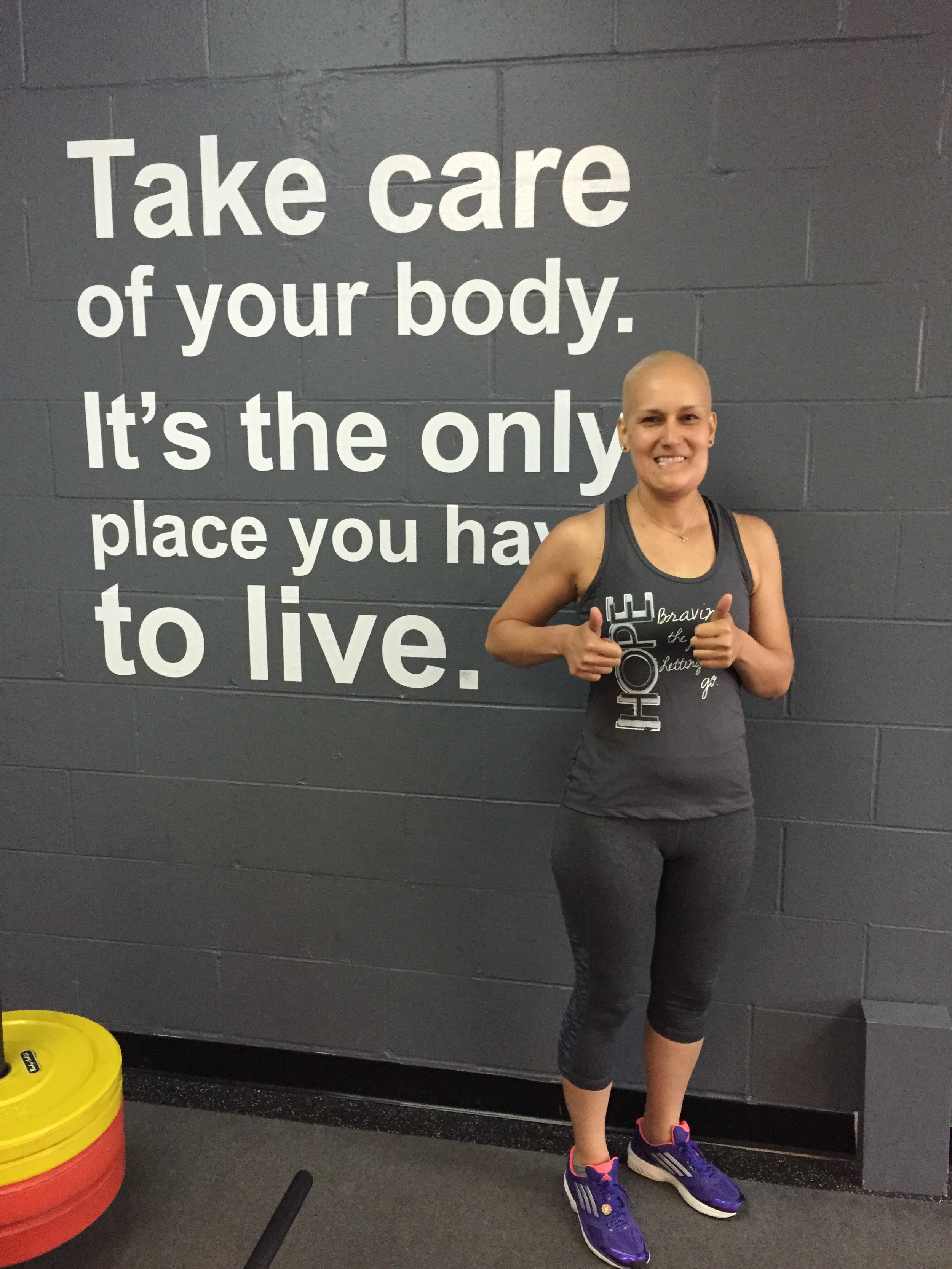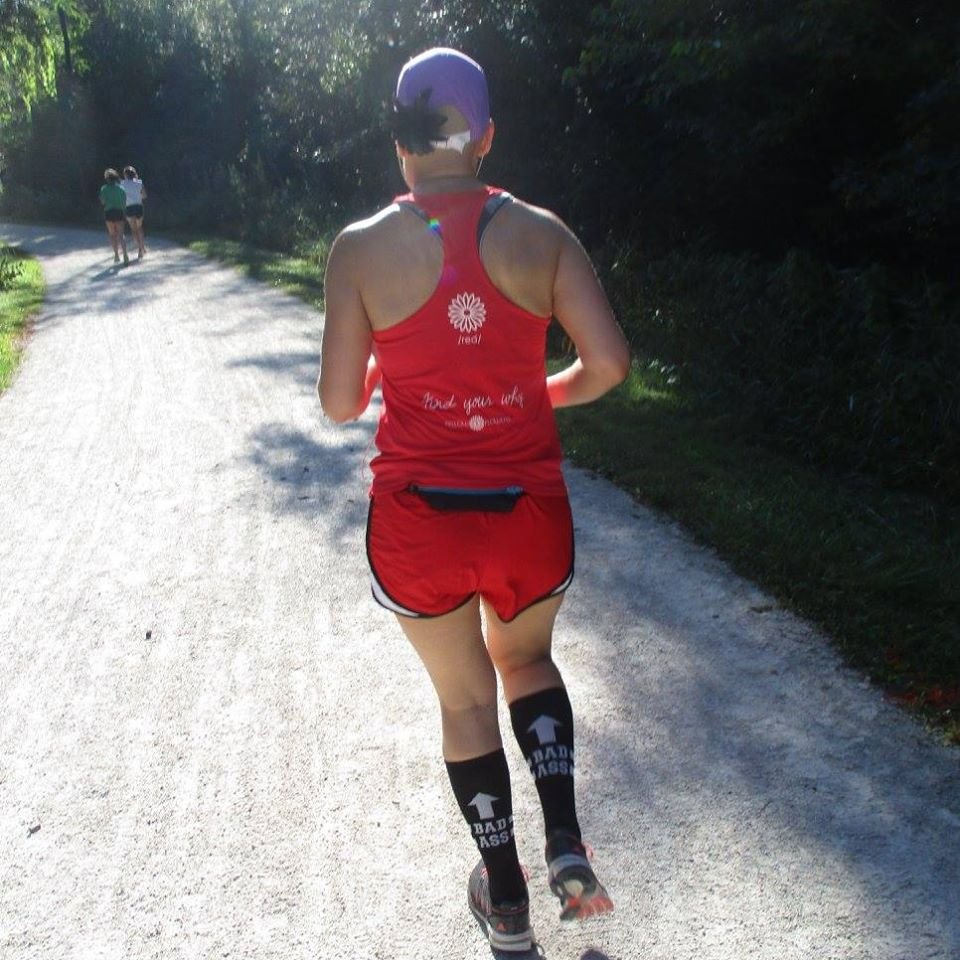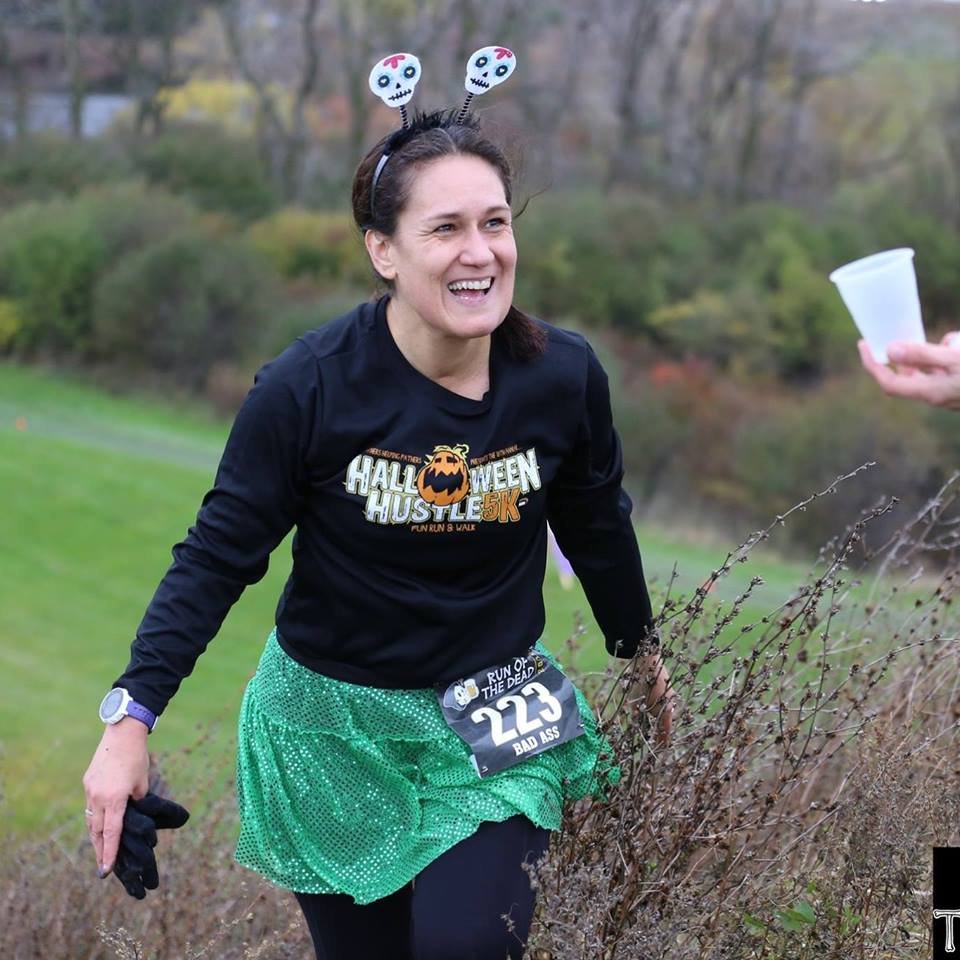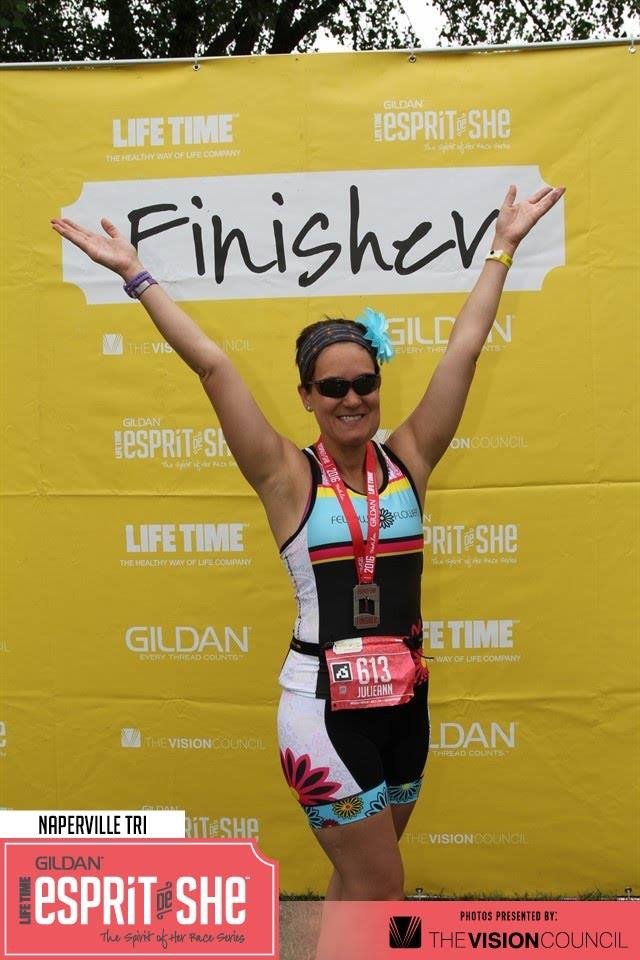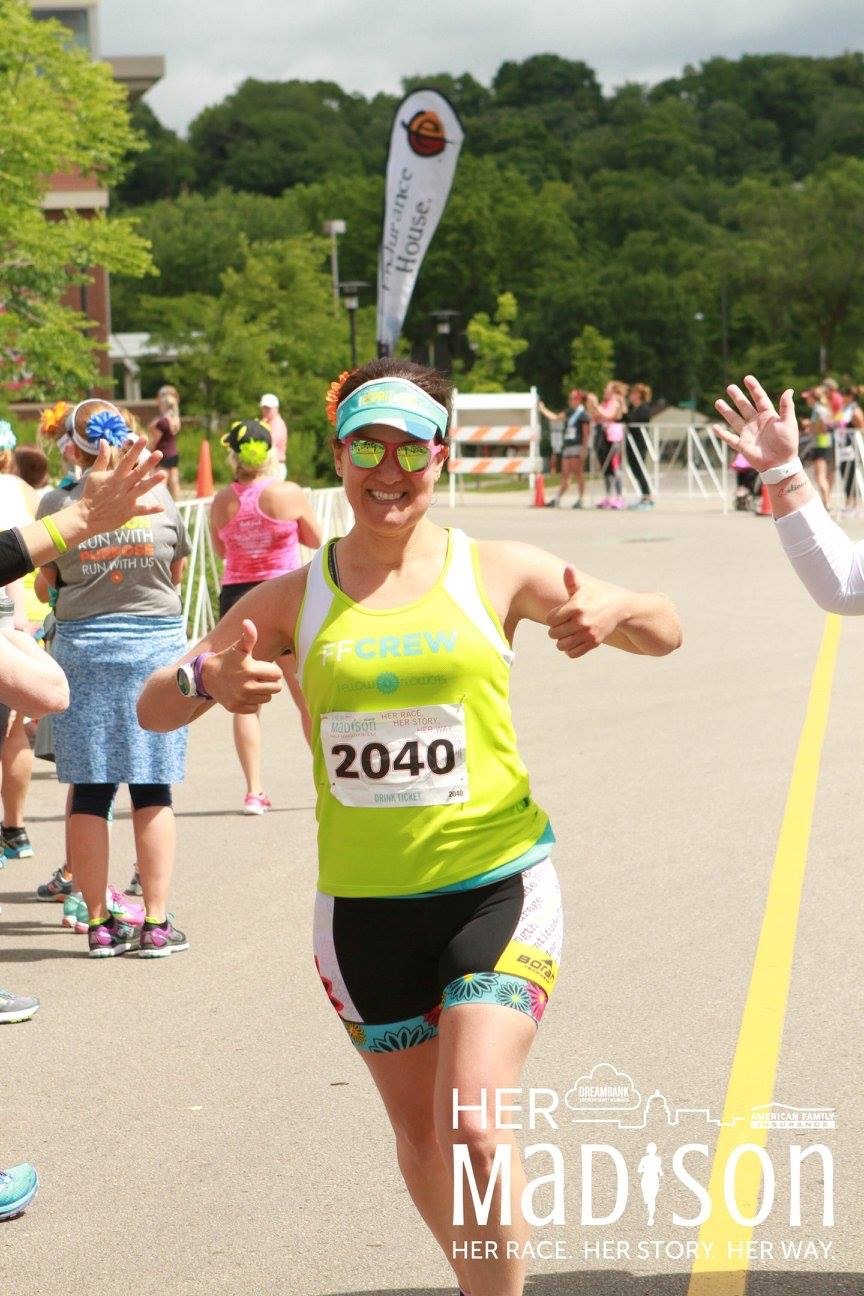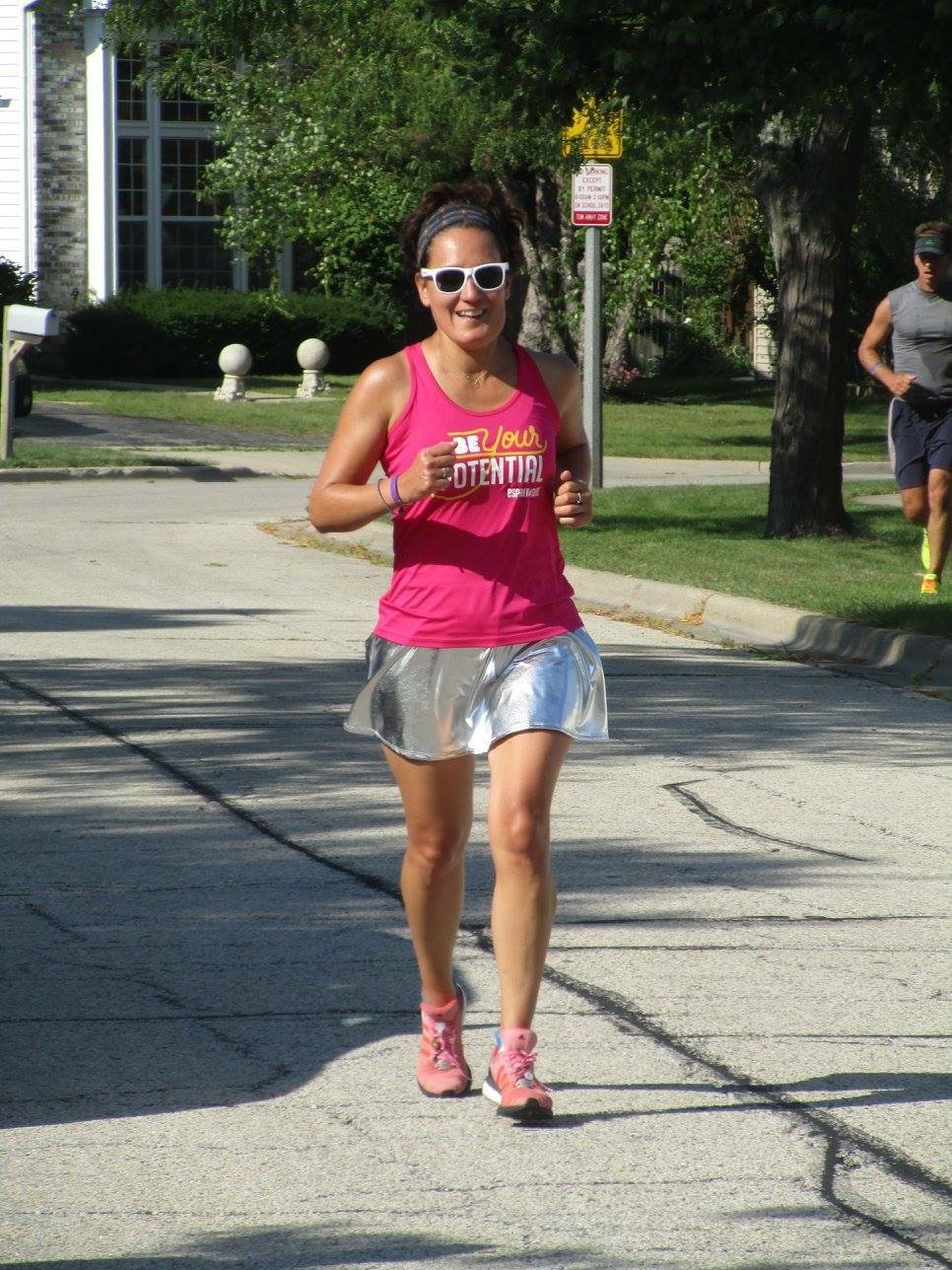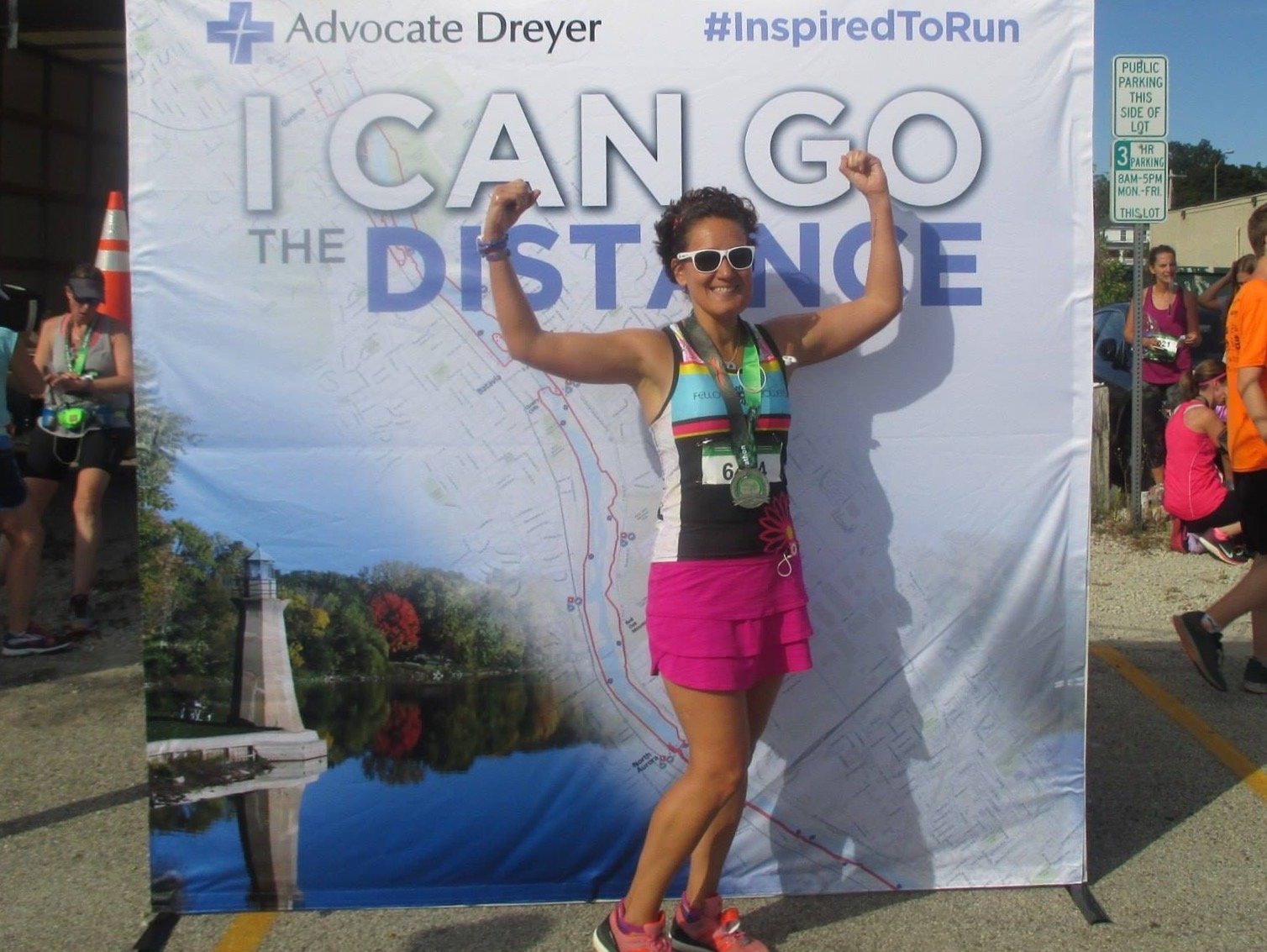In this week’s episode, we are highlighting two storytellers from The Story Collider's Education Program and the stories they crafted as a result of the lessons they learned throughout their workshops.
Part 1: As a teenager growing up in Iran Yasamin Jodat hears about a robotics competition at the local boys' school, and she is determined to do whatever it takes to be part of it.
Yasamin Jodat is currently a Senior Automation Engineer at Ginkgo Bioworks where she designs robotic systems that can run biological laboratory operations at high scales.
Part 2: A third cancer diagnosis threatens to ruin JulieAnn Villa's love of running.
JulieAnn Villa is a health and science communicator. She honed her skills over 20-years as a public high school teacher. Her first Story Collider workshop in 2017, sparked a new, unknown artistic side, and she has been hooked ever since. She is a Chicago Moth Story slam regular and uses her storytelling skills for good in health care, giving voice to patient experience.
Episode Transcript
Part 1
I remember sitting at a large family dinner table in Iran. I'm 14 and it's the beginning of summer. I'm thinking about a robotic competition that I heard about this morning. A competition at the end of the summer. Come join with your robot.
I wonder. Beating cyborgs on Mortal Kombat is certainly fun, but building robots in real life and putting them in a contest is just another level of adventure. But the problem is I have no idea how to build a robot.
So while I'm building the concept in my head I hear my aunt asking, “Yasamin, when are you going to help out your mom and learn to cook?”
Well, at that moment, this is the last thing I want to hear. This is the same alarm I've been snoozing for the past three years. I just don't feel energized by the idea of creating redundancy to my mom's excellent cooking skills. I'll learn to cook when I get to it or, I don't know, when I need to survive. But right now, all I want to do is to explore survival in the form of a robot that has to go into that battle.
But at the same time, I feel really embarrassed and underachieved for not knowing how to cook. My immediate defense mechanism at that moment is to smile and assure my aunt that I'll take care of this as soon as possible.
The next day, I go to school again and I ask around about this robotic competition. I read the poster again and I learned that the boys’ school is actually organizing it. So I wonder how we can be a part of this, because schools are separated in Iran.
But maybe the headmaster knows a way. She knows I'm very interested and proactive about starting new opportunities for the school and she kind of trusts me, so maybe I can start negotiating with her. After all, she knows me and knows that I don't do this just for fun. I'd like to learn something. I'd like to build up the future. And I know many other classmates of mine, like Perry, who aspire to be an engineer and who love to build up their skills.
But here's the thing. I have to negotiate with her. I have to make sure we have a budget for this. This is super last minute. We just have three months to learn. Basically, I have to drop a new bomb.
So I go to the headmaster and, of course, she already knows about this contest. I asked if I could make a team and participate in this competition along with some of my classmates.
When she hears about this, her face lights up like a spinning fortune ball. I can really feel the uncertainty and worry in her face but, at the same time, her face is delighted because there is another opportunity for the girls to participate in something that can help build their future.
She says, “Well, this is something that we haven't planned for and we don't have a budget for it. I don't know. This type of activity needs supplies and support. We don't have any budget.
I say, “I know. Don't worry about this. We can definitely align with our parents. They can help. We can go and shop all the supplies by ourselves. We can even put in some money from our pocket and make sure this happens. Don't worry about it.”
And she says, “Okay. Let's say that is done. What about the robotics experience? None of you have built a robot before? And the school doesn't have a budget for another robotics instructor.”
Then I take a deep breath and this is where I'm actually dropping that bomb. So, I say, “Well, I've heard the boys' school is experienced. There are a few high school seniors in the boys’ school who are going to mentor more juniors for this competition. And I wonder if we can get the same training or be a part of that training.”
There is a pause there. I'm waiting to see how the fortune ball spins again. It's just spinning. I don't see anything.
She says, “Give me a couple of hours to think through this.”
I leave her office with a feeling of as if gearboxes are flying in my stomach. I don't know what's her reaction going to look like. Is she going to say no? Is she okay? I think I’ll just have to wait.
A few hours later, she calls me back to her office and says, “Well, I talked to the organizer from the boys’ school and we can make this happen as long as you guys act really professionally and make sure all the regulations are met and report back every few weeks.”
Wow. I'm just left in awe. This is such a defining moment for me. I can't believe it's happening. In those few milliseconds, I'm just thinking through the next few months. However, in the competition, I'm imagining our robot. I'm thinking about victory. I'm thinking about a bunch of things.
I say, “Thank you so much. This is a great opportunity. We’ll make sure to do our best and you won't be disappointed. Thank you so much.”
I leave her to office. I ran to the yard and I found Perry and Osra and I tell them about this competition. They can't imagine that they can go to this competition and we're super stoked about this.
So, we go to the classes twice a week, go shopping for the parts and learn to manage the small budget that the school has provided us to buy supplies.
The whole school has heard about this project and they can't believe we've managed to take classes at the boys’ school and that we're building a robot.
Three months later, I'm sitting on the floor of my bedroom. It's 2:00 AM and my dad and I are sampling the robot. While I'm measuring and drilling holes in the chassis, I keep reviewing the past three months in my head. We've gone to a school every other day the whole summer. We've managed to buy all the supplies with little money that the school provided and we've been to tens of parts selling shops in the city looking for the right motor and pump. Now, here I am with a broken robot in my hand, less than 10 hours away from the competition.
At that moment, I just want to leave everything behind on the floor and just go to bed and completely forget about the competition. I feel really exhausted.
I think to myself, “Have I stretched myself and my team too thin for the past three months? Maybe we aren't ready after all.”
But then I think about what I want deep inside. I am responsible. My team is the blueprint of all the possibilities that are about to open up to my classmates. We simply can't fail.
The thrill of tomorrow's competition and taking this battle to the finish line keeps me going. So I go back, I fix the joystick, I reassemble the wheels and finally screw in the chassis and go back to sleep.
The next day, Perry, Osra and I go to the competition and we find ourselves in the middle of a large courtyard surrounded by laboratories with a ton of people. I mean, it's not a ton but it's a large crowd. There are certainly no more girls than a few, so it's a little bit intimidating.
But, well, we're here. We're breaking the rules and this is our opportunity. The whole school has heard about this and everybody's amazed that we're going to this competition.
We have trouble finding the judges, though. We look around and it's just so crowded. Everybody is preparing for their robots and putting together all the last‑minute pieces and we're looking for a space to assemble our robot too.
It looks like a spaceship with two sharp needles in the front and a lift truck in the back. We're calling our robot ‘Yahoo’. It doesn't look anything like Yahoo but, last night, I managed to paint a little 'Yahoo logo on it just last minute. I think it was 6:00 AM. So everybody's laughing at it.
We go into the competition and all other teams also start loading their robots in the Battle Ring. All I have to do is to keep the robot within the perimeters and throw the other robot out the ring for just three minutes.
Yahoo wins the first two fights and now it's time for the third match with the winner of the last two rounds. But the needles are breaking apart, the wheels are coming loose, and this one is tricky because the other robot is very agile, very sleek, looks really modern and it's very sharp and pointy. There's absolutely no way we can catch it. It's just running around so fast.
So, I'm just fighting the joystick. I'm trying to control our robot, but because the other robot is super fast, it's just throwing our robot outside the ring several times.
I find myself staring at the one‑minute countdown. My heart is just pumping. I don't know what to do at that moment. I don't know how to fix this. I don't know what is broken. Can someone help me?
So I look around and I can't find Perry. I asked for a timeout to go and find Perry and I see her looking out the window very disappointed, very overwhelmed.
I go and say, “Perry, come on we've got this. We're this close.”
And Perry says, “No, Yasamin, I'm sorry. I can't do this anymore. There's zero chance that we're winning this game.”
You know, that's fair. There is very little chance that we're going to win this game. The other robot is just much better than what we have, but that's not a good reason to leave the game. We should go back and finish it.
And I hear, “Ding.”
“The time is up so we should go back,” I tell Osra. We go back and we've tried to fix the robot as much as we can. It's almost working now so we go back to the ring and start the competition again.
After a few seconds, I see Perry joining us again because, you know what? Our robot is beating the other robot with the lift truck like there is no tomorrow. I mean, we designed that lift truck to lift the other robots but, now, we're actually hitting that robot with the lift truck.
That feels so good because I was furious earlier. I could hear everybody, all the boys in the background saying, “Well, look at that broken robot. There's no chance you're going to win this game. What are you even doing here?”
But, now, we're back in the game.
Of course, there's no way we're going to win that battle because we just lost. But we finished the game and win third place among all the other contestants who were a few years older than us.
I know we lost that battle but I still feel victorious for starting this with my classmates. There is a great feeling in me. The bond that I'm feeling right now, the feeling of belonging to a robotics team is just stronger than all the wires that we soldered last night. I feel stoked and I feel very passionate about robotics right now.
That was the defining moment that I decided at being in the combat zone is where I want to be all the time.
Part 2
I had this magnet on my fridge that said ‘Running Is Cheaper Than Therapy’. And I would say that most of my friends agree with that, because I've spent the past 25 years running on the Chicago Lakefront. What started as a hobby eventually became year‑round, no matter what the weather. I actually own two pairs of reflective winter running pants for light and cold winter.
After all of this time, I definitely would say that my therapist and I both agree that I'm simply better when I move on a regular basis physically and mentally.
Then, about 18 months ago, I started having pain in my right hip. I figured at this point I was kind of in like mid‑40s, urban cliché, because I had decided to also throw CrossFit into the mix. There's like gymnastics movements. I had kind of come to the fact that I would book an MRI. Maybe this would be the point where I had to deal with an injury and perhaps kind of dial it back.
Then I got this phone call and it was after work. On the screen of my phone, I immediately knew that it was the hospital. The surgeon is talking to me and he says, “You have a very large tumor in the right side of your pelvis and it's cancer.”
He describes to me a very complicated surgery involving multiple teams. It's kind of the stuff that a good Grey's Anatomy episode, maybe a two‑part episode is built around.
JulieAnn Villa shares her story at the International Museum of Surgical Science in Chicago in May 2022. Photo by Storyographers (Seed Lynn).
At the end he says, “You know, but this would be a painful surgery for both of us and it wouldn't give you the outcome that you're looking for.”
The thing is is that this is my third cancer diagnosis in the span of 10 years so I have oncologists on speed dial. I sit down for a video conversation with my previous oncologist who knows me. We are both runners. And he's looked at all of my scans and all of my background information and we're talking about different treatment options.
He says, kind of like a question, “Are you going for a cure?” Which immediately I say yes. I don't even know what we talked about after that because a cure means surgery to remove the tumor.
So, I go back. I book time with the surgeon and I go into his office. I realize at some point that he and I have met before. I kind of knew this. About two years prior, because I'm never maybe three to six months away from a scan.
And when I introduce myself as a patient or even a person, I check off things like 52 half‑marathons and a cycling coach and I used to be a spin instructor and I enjoy hiking, much like the way many women check the boxes of wife and mother. So, he gets me.
I bring in with me an anatomy coloring book, because I want to be very clear about what we're about to talk about. He's explaining to me the surgery that is not inoperable but life‑changing. And what we're looking at on the page is a black and white drawing. If you haven't thought about the human anatomy and the pelvis, there's that kind of like stick thing in the middle. Kind of like a stack of Lifesavers with all of your cervical spine. Then at the bottom are the two lobes or like wings of a butterfly.
I hand him a pen and I ask him to mark on the picture what he's going to do. What he does is he takes the pen and he marks right in the middle, kind of in the middle and the half. Then over on the side, he's going to make these two cuts and he's going to take away half of my pelvis in a hemipelvectomy. And he's not going to replace it with anything. This is the surgery.
When I come out of the ICU in June, the first thing I notice is that there's a tube down my throat. My arms are strapped down and so are my legs. As I'm starting to wake up and they take the tube out, I immediately ask them to put on Bravo because there's like a Top Chef marathon on.
JulieAnn Villa shares her story at the International Museum of Surgical Science in Chicago in May 2022. Photo by Storyographers (Seed Lynn).
Then, by the end of the day, I'm put into a regular room, just in time to find out who the winner is and what the fabulous meal was. But by day four when the resident comes in before sunrise, he tells me that I'm cleared for unrestricted weight bearing, which is medical jargon for they can try to make you stand at bedside using a walker on day four.
Then, within a week, I'm no longer attached to any tubes and they take me about a block away in an ambulance and they bring me over for inpatient therapy.
My therapist and I are a great match. The very first day, he says, “Come on. Let's see what you can do.”
He also asks me to see if I can lift my leg one time to get up a very bright orange set of stairs. When he really wants to motivate me, he looks me right in the eye and says, “Come on. Heart of a champion,” and gets me to do a few more reps.
Within a month of this, I'm finally ready to go home. I wheel myself out of the inpatient hospital, the therapy hospital, over back to my surgeon's office. The team is there and they're remarking, they say this is the best surgical outcome they've ever seen. That it's ideal. And they look at the three parts of my skin that have been sewn together and they're amazed that I haven't needed another transfusion, that it looks like I'll never need a skin graft.
I make it into kind of my own version of Show and Tell where I pick up videos on my phone and I say that, I show them that I can now go up and down those orange stairs with just a little bit of help. I've used these canes for the very first time because they figured out that my upper body is strong enough to hold up my body weight as I learn to stand again.
Just as I'm about to head out, I ask for clarity. I say, “So, remind me again what are my restrictions?”
The surgeon looks at me and he says, “Well, you decide what's possible. No running of any kind. No high‑impact. But beyond that, you get to define what's possible for us.”
JulieAnn Villa shares her story at the International Museum of Surgical Science in Chicago in May 2022. Photo by Storyographers (Seed Lynn).
So I just proceed with going home. My family's got all the balloons and the cards and all the things packed up after a month, but I am pissed and seething. Because, in the months prior to this, I seem to have found the one surgery, a medical condition that you actually cannot Google.
I have a degree in health communication from the institution a couple blocks from here where I'm being treated. I work in healthcare. And it doesn't matter what hashtag I search on Twitter or where I go on Facebook or dive into YouTube. I even made a brief foray into what's that thing called like where they do the dances. TikTok. All of that looking to find an answer and there isn't one. There simply aren't people living like me after surgery. No evidence.
Eventually, I do learn that you can find— there's this very lively, very rich adaptive sport community in Chicago and I start with a little bit of indoor rock climbing. Then, on a sunny day in early April, true story here in Chicago, believe it or not, I actually do my first miles outside.
Immediately, a few things become very clear. They get me a sport wheelchair and I realize that I cannot get into that chair without at least two or three people helping me. That you are required to wear a helmet, of course, because the streets of Chicago are dangerous and that they have a lot of potholes and a few cobblestones. You can actually flip over when you're using a sport wheelchair. That kind of terrifies me a little bit as I'm learning to use it for the very first time.
But that same day, there were 14 friends who ran right alongside me every step of the way. Then I crossed my first Finish Line, even though it was an inflatable one.
What I now know for certain is that even though I'm still actively living with cancer, is that I know that the next time that somebody Googles ‘internal hemipelvectomy’, that the person that they're going to find living life is me.



